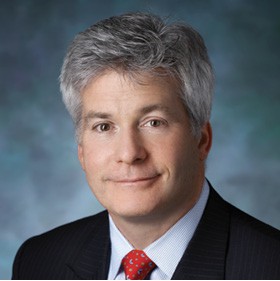
Inflammatory bowel disease (IBD) is a group of chronic intestinal diseases. These diseases involve inflammation of all or part of your digestive tract.
The two most common IBDs are ulcerative colitis (UC) and Crohn’s disease. UC is limited to the large intestine (colon) and Crohn’s disease can affect the digestive tract from mouth to anus.
IBD symptoms can involve:
- Significant and persistent diarrhea.
- Stomach pain and cramps.
- Fatigue.
- Bloody stools (more typical with UC).
- Reduced appetite.
- Unintentional weight loss.
“It’s common to confuse Crohn’s disease and UC with other conditions because they share common and nonspecific symptoms,” explains Mark Flasar, MD, who specializes in gastroenterology and IBD at Anne Arundel Medical Center.
AAMC recently opened its patient-centered Crohn’s and Colitis Clinic. The clinic’s team includes nutritionists, physicians, gastroenterologists and surgeons—all with focused training and experience in IBD management.
A multidisciplinary approach to IBD therapy offers the best path to a better quality of life. “When the IBD patient is at the center of a team, we can expedite care and hopefully achieve remission,” says AAMC Department of Surgery Chair Adrian Park, MD.
“With the entire team in one clinic, everything revolves around the patient,” explains Dr. Park. “Instead of sending patients out for consults, we collaborate as a team to help the patient. This seamless process provides a better level of care.”
There’s no definitive trigger for IBD. This makes flare-ups unpredictable. In addition, there’s no cure for Crohn’s disease and UC can only be cured by removing the large intestine. With proper care, though, many IBD patients achieve long-term remission. Here are three reasons to seek medical help if you suffer persistent IBD symptoms.
 You’re not alone. It’s important to have a network of support as you adjust your lifestyle to manage IBD. About 1.6 million Americans have IBD, according to the Crohn’s and Colitis Foundation of America (CCFA). Doctors diagnose 70,000 new cases of IBD in the United States each year.
You’re not alone. It’s important to have a network of support as you adjust your lifestyle to manage IBD. About 1.6 million Americans have IBD, according to the Crohn’s and Colitis Foundation of America (CCFA). Doctors diagnose 70,000 new cases of IBD in the United States each year. New treatments are available. Advances in genetics, immunology and microbiology have led to far more options to treat IBD. Start with a frank discussion with your primary care physician (PCP). Your PCP may refer you to a gastroenterologist, who can pinpoint the best and latest treatment.
New treatments are available. Advances in genetics, immunology and microbiology have led to far more options to treat IBD. Start with a frank discussion with your primary care physician (PCP). Your PCP may refer you to a gastroenterologist, who can pinpoint the best and latest treatment. Self-medication is never a solution. “When you have IBD, your immune system is attacking your intestine. Over-the-counter medications may mask the diarrhea and pain, but intestinal damage is still going on,” Dr. Flasar stresses. “Only a physician can help control symptoms and possible long-term damage.”
Self-medication is never a solution. “When you have IBD, your immune system is attacking your intestine. Over-the-counter medications may mask the diarrhea and pain, but intestinal damage is still going on,” Dr. Flasar stresses. “Only a physician can help control symptoms and possible long-term damage.”
Remission results are impressive. According to the CCFA, 70 percent of UC patients and 45 percent of Crohn’s disease patients in remission remain relapse-free during the next year. There’s evidence that early IBD treatment may help minimize intestinal tract damage and reduce life-altering symptoms.
Read more about our new Crohn’s and Colitis Clinic.
 Mark Flasar, MD, is a gastroenterologist at AAMC.
Mark Flasar, MD, is a gastroenterologist at AAMC.
 Adrian Park, MD is the chair of AAMC’s Department of Surgery.
Adrian Park, MD is the chair of AAMC’s Department of Surgery.



